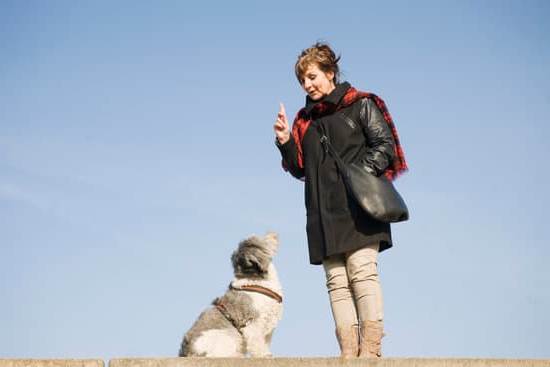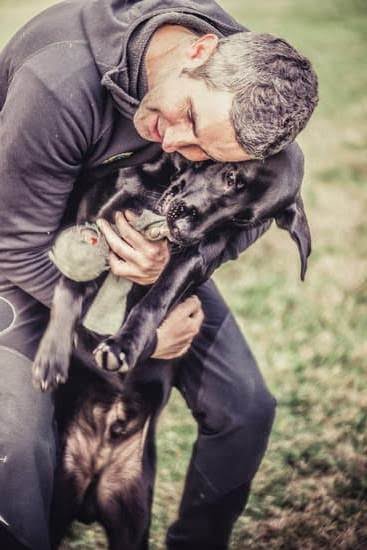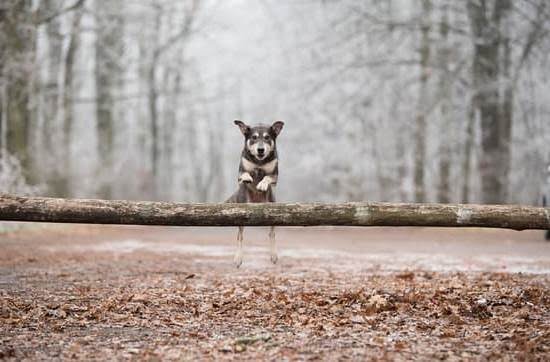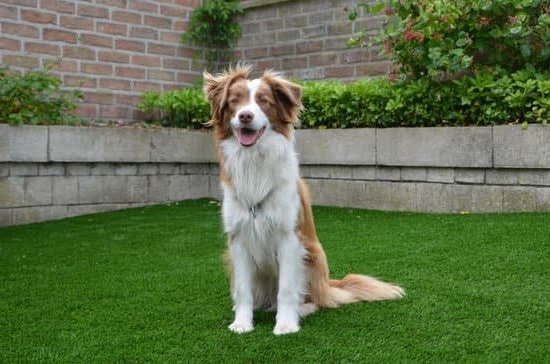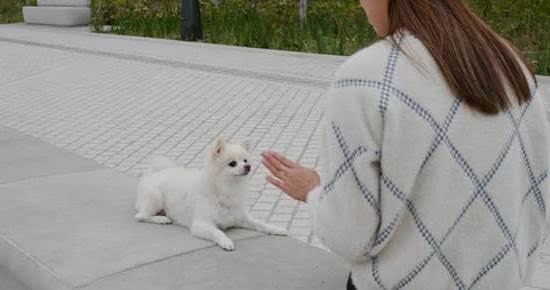A bird dog trainer is a professional who specializes in training and developing hunting dogs, specifically bred for their ability to locate and retrieve game birds. Whether you are a seasoned hunter or a novice enthusiast, having a well-trained bird dog by your side can make all the difference in your hunting experience. In this article, we will explore the role of a bird dog trainer and what you can expect when working with one.
When it comes to bird dog training, hiring a professional trainer is highly recommended. A skilled trainer understands the unique needs and behaviors of bird dogs, allowing them to tailor their training methods accordingly. They have years of experience working with various breeds and temperaments, ensuring they can effectively train your bird dog to become a reliable partner in the field.
Having a bird dog trainer by your side not only saves you time and frustration but also ensures that your dog receives proper guidance and direction right from the start. A trained bird dog offers many benefits, including improved accuracy in locating game birds, better retrieval skills, and enhanced obedience during hunts. The expertise of a professional trainer can help maximize these qualities in your four-legged companion.
Whether you are looking to purchase a new puppy or refine the skills of an existing hunting companion, working with a bird dog trainer is essential. In the following sections of this article, we will delve deeper into the qualifications and experience that a bird dog trainer should possess, as well as explore the training methods used by these professionals.
We will also discuss how trainers address behavioral issues and challenges that may arise during the training process. So let’s dive in and discover what it takes to find the right bird dog trainer for your needs and expectations.
What Qualifications and Experience Should a Bird Dog Trainer Have?
A qualified and experienced bird dog trainer is essential when it comes to ensuring the success of your bird dog training journey. When searching for a trainer, it is crucial to understand the qualifications and experience that they should possess.
- Certifications: Look for trainers who have obtained certifications from reputable organizations such as the National Association of Dog Obedience Instructors (NADOI) or the Certification Council for Professional Dog Trainers (CCPDT). These certifications demonstrate that the trainer has met specific educational and training requirements in the field.
- Experience with Bird Dogs: A good bird dog trainer should have ample experience working specifically with bird dogs. This experience includes understanding the unique needs, instincts, and behaviors of these breeds. Ask potential trainers about their previous work with bird dogs, including any success stories or testimonials from previous clients.
- Familiarity with Different Training Methods: Different trainers may employ various training methods, so it’s important to find one whose methods align with your goals and preferences. Some popular techniques include positive reinforcement, clicker training, and force-free training. Be sure to inquire about their philosophy on training and ensure it matches your own beliefs regarding animal welfare.
- Knowledge of Field Work: Since bird dogs are often used for hunting or other field activities, a knowledgeable trainer should have experience in this area as well. They should be familiar with teaching skills such as tracking, retrieving, scent recognition, and obedience in outdoor environments.
Finding a qualified bird dog trainer is crucial to ensuring that your pup receives the proper training they need to excel in their role. By considering factors like certifications, relevant experience, adherence to ethical training methods, and knowledge of field work, you can make an informed decision when selecting a trainer for your beloved bird dog companion.
Understanding the Training Methods Used by Bird Dog Trainers
Bird dog trainers use a variety of training methods to teach and reinforce desired behaviors in bird dogs. Understanding these methods can help you determine if a particular trainer is the right fit for your needs and expectations.
Positive reinforcement is one of the most common training methods used by bird dog trainers. This involves rewarding the dog with praise, treats, or play for exhibiting the desired behavior. By associating the behavior with a positive outcome, the dog is more likely to repeat it in the future. Positive reinforcement is effective in training basic commands such as sit, stay, and come, as well as advanced skills like retrieving birds or pointing.
Another training method frequently used by bird dog trainers is clicker training. With clicker training, a small handheld device called a clicker is used to mark the exact moment when the dog performs the desired behavior. The sound of the clicker serves as a clear signal that the dog has done something correctly and will be followed by a reward. Clicker training helps dogs learn quickly and precisely because it provides immediate feedback.
Some bird dog trainers may also utilize aversive training methods, although these are less common today due to their controversial nature. Aversive techniques involve using punishment or negative stimuli to discourage unwanted behaviors. Examples may include using shock collars or spray bottles to deter barking or digging. It’s important to note that aversive techniques should only be used sparingly and under appropriate circumstances, as they can be harmful if not applied correctly.
| Training Method | Description |
|---|---|
| Positive Reinforcement | Rewards desirable behavior with praise, treats, or play |
| Clicker Training | Uses a clicker to provide immediate feedback and reinforce correct behavior |
| Aversive Techniques | Uses punishment or negative stimuli to discourage unwanted behaviors (e.g., shock collars, spray bottles) |
Evaluating the Cost and Time Commitment of Bird Dog Training
When considering bird dog training, it is essential to evaluate the cost and time commitment involved. This section will provide insights into the factors that influence the cost of training, as well as the time required to achieve desired results.
Factors Affecting the Cost
The cost of bird dog training can vary depending on several factors. One consideration is the type of training program you choose. Generally, programs that include boarding your dog at a trainer‘s facility tend to be more expensive compared to programs where you attend sessions with your dog. The length and intensity of the training program may also impact the cost. Longer programs or those that focus on advanced skills may require a higher investment.
Another factor affecting cost is the reputation and experience of the trainer. Trainers with extensive experience and a successful track record may command higher fees. Additionally, geographic location can influence pricing, as trainers in areas with a high demand for their services tend to charge more.
It is essential to remember that while price can be an important consideration, it should not be the sole determining factor when choosing a bird dog trainer. The expertise and quality of training provided should also be taken into account.
Time Commitment Required
Bird dog training requires consistent dedication over an extended period. The time commitment can vary depending on several factors such as your goals for training and your dog’s individual needs and capabilities.
Training sessions typically occur several times a week and can range from 30 minutes to an hour or even longer, depending on the complexity of the skills being taught. In addition to formal training sessions, you will need to dedicate time for reinforcement exercises at home to help solidify what your dog has learned.
It’s important to note that effective training takes time, patience, and consistency. Progress may not always be linear, and each dog learns at their own pace. Depending on your dog’s progress and your training goals, the time commitment for bird dog training can range from several weeks to several months.
Understanding the cost and time commitment involved in bird dog training will help you make an informed decision and set realistic expectations. By carefully evaluating these factors, you can find a training program that aligns with your budget and time available, ensuring the best possible outcome for you and your bird dog.
The Importance of Communication and Collaboration with Your Trainer
Effective communication and collaboration between a bird dog trainer and their client is crucial for the success of the training process. It ensures that both parties are on the same page, working towards a common goal, and helps to establish a strong working relationship. In this section, we will explore why communication and collaboration are important when working with a bird dog trainer.
Establishing Clear Expectations
When starting with a bird dog trainer, it is important to have clear expectations about what you hope to achieve through the training process. This could range from basic obedience commands to advanced skills like retrieving or tracking. By openly communicating your goals and aspirations for your bird dog, you can help the trainer tailor the training program specifically to your needs.
Collaboration comes into play by actively participating in discussions about your dog’s progress, challenges, and any concerns that may arise during training sessions. By working together with your trainer, you can ensure that they understand your vision and can make adjustments as necessary.
Providing Feedback
Communication is a two-way street, so it is equally important for clients to provide feedback to their bird dog trainers. Trainers rely on feedback from clients to gauge their satisfaction with the services provided and to make necessary adjustments. If something is not going according to plan or if you have concerns about certain training methods being used, it is crucial to communicate these issues promptly.
Collaborating with your trainer involves being open and honest about what is working well for you and your bird dog, as well as areas where improvement may be needed. This feedback loop allows trainers to fine-tune their approach and ensure that their methods align with their client’s expectations.
Building Trust
A strong foundation of trust between a client and trainer is essential for successful bird dog training. Open lines of communication foster trust as it allows clients to voice any concerns or questions they may have. When trainers address these concerns promptly and attentively, it helps build confidence in their abilities.
Collaboration also builds trust as it demonstrates that the trainer values the client’s input and actively seeks to involve them in the training process. Feeling heard and acknowledged creates a positive working environment for both parties, leading to better collaboration and, ultimately, improved results.
By prioritizing communication and collaboration with your bird dog trainer, you can ensure that you are getting the most out of your training experience. It establishes clear expectations, allows for feedback and adjustments when necessary, and builds trust between both parties. With effective communication and collaboration, you are well on your way to achieving success in training your bird dog.
What to Expect During the Initial Consultation with a Bird Dog Trainer
During the initial consultation with a bird dog trainer, there are several important aspects to expect and consider. This meeting serves as an opportunity for both you and the trainer to get to know each other, discuss your goals and expectations, and assess whether you are a good fit for each other. Here are some key elements to anticipate during this crucial first meeting:
- Discussion of Your Training Goals: The initial consultation is an ideal time to discuss your specific training goals for your bird dog. Whether you want your dog to excel in hunting or become a well-behaved companion, it is important to communicate these objectives clearly to the trainer. Additionally, the trainer may ask questions about your lifestyle, daily routines, and any challenges you have encountered while training your dog thus far.
- Assessment of Your Bird Dog’s Current Abilities: The trainer will likely evaluate your bird dog’s current skills and abilities during the initial consultation. This assessment may involve observing your dog’s behavior, obedience level, natural instincts, and overall aptitude for bird dog training. By understanding where your dog stands at the beginning of the training process, the trainer can tailor their approach accordingly.
- Determination of Training Methods and Approach: Another key aspect of the consultation is determining the training methods that will be employed for your bird dog. Different trainers may have varying techniques and philosophies when it comes to bird dog training.
It is essential that you align with the chosen methods and find them suitable for achieving your desired outcomes. During this discussion, be sure to ask questions about their methods and how they will handle specific training challenges that may arise.
| Expectations | Details |
|---|---|
| Training Goals | Discuss your specific goals and expectations for your bird dog’s training. |
| Assessment of Abilities | Evaluate your bird dog’s current skills, behavior, obedience, and natural instincts. |
| Training Methods | Determine the trainer’s methods and approach to ensure they align with your preferences and objectives. |
By understanding what you can expect during the initial consultation with a bird dog trainer, you can be better prepared for this pivotal stage of the training process. This meeting lays the foundation for a successful training journey and allows both you and the trainer to establish a strong working relationship based on clear communication and shared objectives.
Step by Step Training Process
A bird dog trainer follows a systematic training process to ensure that your bird dog develops the necessary skills and behaviors. This step-by-step approach allows trainers to gradually progress from basic commands to more advanced skills. Here is an overview of what you can expect during the training process:
1. Establishing a Foundation: The trainer will begin by establishing a solid foundation for your bird dog’s training. This includes teaching basic commands such as sit, stay, come, and heel. These commands are important building blocks for further training and will provide your bird dog with a strong understanding of obedience.
2. Developing Retrieving Skills: A key aspect of bird dog training is developing retrieving skills. The trainer will work on teaching your bird dog how to find and retrieve birds or objects on command. This involves introducing scent recognition, marking, and steadiness in retrieving.
3. Introducing Field Work: Once the foundation is set, the trainer will gradually transition to field work. This includes exposing your bird dog to working in different terrains and environments, as well as introducing them to live birds for hunting purposes.
4. Honing Pointing Abilities: For pointing breeds, honing their natural pointing abilities is essential. The trainer will focus on refining their instincts and teaching them to hold steady on point until given the cue to flush or retrieve the game.
5. Advancing Training: As your bird dog progresses through the initial training stages, the trainer will introduce more complex skills and tasks tailored to their breed type and intended purpose. This can include advanced retrieves, blind retrieves, water retrieves (for waterfowl hunting), or handling drills for competitive events.
Throughout this step-by-step process, it’s important to note that trainers use positive reinforcement techniques to motivate and reward the bird dog for desirable behaviors. They may incorporate treats, praise, or play as rewards to reinforce training success.
Remember, each bird dog is unique and will progress at their own pace. The trainer will tailor the training program to your dog’s individual needs, ensuring that they receive the appropriate level of challenge and support to reach their full potential. By following this step-by-step approach, you can expect your bird dog to develop the necessary skills and behaviors needed for a successful partnership in the field.
How Bird Dog Trainers Address Behavioral Issues and Challenges
Bird dogs, like any other type of dog, may exhibit behavioral issues and challenges that need to be addressed during training. A skilled bird dog trainer will have the knowledge and experience to tackle these problems effectively. This section will discuss how bird dog trainers address behavioral issues and challenges, providing insight into their methods and techniques.
One common behavioral issue in bird dogs is chasing after small animals or birds instead of pointing and retrieving them. Trainers use various methods to redirect this behavior and train the dog to focus on the desired task. For example, they may introduce a “leave it” command to teach the dog self-control when it encounters distractions in the field.
Another challenge that may arise is gun shyness, where the loud noises from firearms startle or frighten the dog. Trainers employ desensitization techniques by gradually exposing the dog to loud sounds associated with hunting scenarios. This helps build confidence in the dog over time, reducing its fear response.
Resource guarding is another behavioral issue that bird dogs may exhibit. This occurs when a dog becomes possessive over its food, toys, or other valuable items. Trainers work with such dogs using positive reinforcement training methods to teach them that sharing resources leads to rewards, ultimately eliminating resource guarding tendencies.
In order to address these behavioral issues successfully, effective communication between the trainer and owner is crucial. The trainer needs input from the owner regarding any specific problem behaviors they’ve noticed at home or in their interactions with the dog. This information helps tailor the training program specifically for each individual dog’s needs.
| Behavioral Issue | Training Method |
|---|---|
| Chasing small animals | Redirecting behavior through “leave it” command |
| Gun shyness | Desensitization to loud sounds gradually |
| Resource guarding | Positive reinforcement training and resource-sharing exercises |
Assessing the Progress and Success of Bird Dog Training
Tracking and evaluating the progress and success of bird dog training is an essential aspect of the training process. It allows owners to gauge their dog’s development, identify areas for improvement, and make necessary adjustments to ensure maximum effectiveness. Here are some key factors to consider when assessing the progress and success of bird dog training.
1. Obedience and Performance Skills:
One of the primary objectives of bird dog training is to instill obedience and develop specific performance skills in your dog. It is crucial to evaluate how well your bird dog responds to basic commands such as sit, stay, come, heel, and fetch. Assess whether they execute these commands promptly, accurately, and consistently. Additionally, observe their performance skills during hunting simulations or actual fieldwork.
Are they effectively pointing out birds? Are they retrieving birds without causing damage? Periodic assessments will help monitor their growth in these areas.
2. Comfort Level with Distractions:
A well-trained bird dog should remain focused in potentially distracting environments or situations such as loud noises, unfamiliar settings, or encountering other animals or people during a hunt. Assess how your dog reacts in these circumstances by gradually exposing them to different levels of distractions during training sessions or simulated hunts. If your bird dog remains composed and maintains concentration despite distractions, it indicates progress in their training.
3. Timing and Consistency:
Consistency is crucial when evaluating the progress of bird dog training. Observing improvements over time rather than expecting immediate results is vital for a successful outcome. Take note of how quickly your bird dog learns new skills or behaviors compared to previous sessions. Are they applying previously learned commands consistently? Regularly documenting milestones achieved will help track progress objectively.
4. Bond Between Owner and Dog:
The bond between an owner and their bird dog plays a significant role in the overall success of the training process. A strong relationship built on trust, respect, and effective communication fosters better cooperation and enhances the dog’s performance. Assess the level of connection between you and your bird dog during training exercises.
Are they attentive to your commands? Do they seek guidance or reassurance from you when faced with uncertainties? A harmonious bond is a positive indicator of progress in bird dog training.
By regularly evaluating these factors, owners can assess the progress and success of their bird dog’s training effectively. It is essential to approach assessments objectively and remember that each dog progresses at its own pace. Celebrate achievements, identify areas for improvement, and work collaboratively with your trainer to ensure continued growth for both you and your bird dog throughout the training journey.
Beyond the Training
Bird dog training goes beyond the initial training process. A good bird dog trainer understands that ongoing support and resources are crucial for both the owner and the dog’s success. This section will explore the importance of continued support and the resources that should be provided by a bird dog trainer.
One of the key aspects of continued support is access to a community of fellow bird dog owners and trainers. This can be in the form of online forums, social media groups, or local training clubs. These communities provide a space for owners to share experiences, ask questions, and receive guidance from experienced trainers. Having this support network can make a significant difference in overcoming challenges, sharing successes, and getting tips on maintaining skills beyond basic commands.
Another important aspect of continued support is providing resources for ongoing education. A reputable bird dog trainer should offer workshops, seminars, or webinars on topics such as advanced training techniques, field trial preparation, or specific breed-related issues. Continued education opportunities allow owners to deepen their understanding of bird dog training and stay up-to-date with the latest methods and research.
Additionally, a good bird dog trainer should also provide resources for addressing common behavioral issues that may arise after the initial training period. These resources may include written materials or video tutorials on addressing problems like separation anxiety, fearfulness around loud noises or gunshots, or manners around other dogs and people.
Conclusion
In conclusion, finding the right bird dog trainer for your needs and expectations is crucial in ensuring the success of your training journey. Understanding what qualifications and experience a trainer should have, as well as their training methods, cost, and time commitment, will help you make an informed decision.
Communication and collaboration with your trainer are essential for a successful partnership. Keep the lines of communication open and share your goals and concerns with them. This will allow them to tailor the training program to suit both you and your bird dog’s needs.
During the initial consultation, take the opportunity to ask questions about their training approach and get a sense of their expertise. A good trainer will explain their step-by-step training process from basic commands to advanced skills.
It’s also important to consider how a trainer addresses behavioral issues and challenges. Find out if they have experience in dealing with specific issues that may be relevant to your bird dog.
Lastly, remember that finding the right bird dog trainer is not just about the training itself but also about continued support and resources. Look for a trainer who offers ongoing guidance and assistance even after the training sessions are over.
By taking the time to find a qualified and experienced bird dog trainer who aligns with your goals, you can set yourself and your bird dog up for success in training and create a strong bond between you both.
Frequently Asked Questions
Is training a bird dog hard?
Training a bird dog can be challenging, but with patience, consistency, and the right techniques, it is certainly achievable. It requires time and effort to establish a strong foundation for obedience and hunting skills. The process involves teaching the dog to follow commands such as “sit,” “stay,” and “heel,” as well as honing their natural instincts for tracking and retrieving birds.
Building a reliable relationship between the handler and the bird dog is crucial, as is understanding the specific needs of the particular breed involved. While it may take time to train a bird dog effectively, it can also be a rewarding experience.
What are the mistakes in bird dog exercise?
There are several mistakes that can occur during bird dog exercise that may hinder training progress. One common mistake is inconsistent reinforcement of commands or allowing bad habits to persist without correction. It’s important to be consistent in expectations and rewards when teaching commands like “come” or “fetch.”
Additionally, not providing enough mental or physical stimulation for the bird dog can lead to restlessness or disruptive behavior during training sessions. Another mistake is rushing through the training process, expecting quick results without giving the necessary time for proper learning and understanding to occur. Lastly, using overly harsh or aggressive methods can cause fear or anxiety in the dog, which negatively impacts their ability to learn and trust.
What can I expect from a dog trainer?
When working with a professional dog trainer, you can expect various things depending on your needs and goals. A good trainer will begin by assessing your dog’s behavior, temperament, strengths, and areas requiring improvement. They will then develop an individualized training plan tailored specifically to your dog’s needs and your objectives as an owner.
Trainers typically employ positive reinforcement techniques that reward desired behaviors rather than relying on punishment-based methods. They will guide you in effectively communicating with your dog through clear cues and commands while addressing any behavioral issues that may arise during training sessions. A skilled trainer should also provide ongoing support and guidance throughout the training process, ensuring that you and your dog achieve long-term success.

Welcome to the blog! I am a professional dog trainer and have been working with dogs for many years. In this blog, I will be discussing various topics related to dog training, including tips, tricks, and advice. I hope you find this information helpful and informative. Thanks for reading!

